Our Educational Program
Mathematics
Speech-Greek Language-Nature-History-Customs
Natural Sciences
English
Emotional Intelligence
Environmental education
Aesthetic Education-Artistic Expression
Theatrical Game - Theater Pedagogy
Musical education
P/C-Technology
Museum Education
Psychomotor Education
Athletic activities
Rhythmic & Instrumental Gymnastics with elements of Dance
Martial arts
Musical Motor Education Carl Orff
Experiences & knowledge
We enrich children's experiences with the Natural and Social Environment and use Modern Technology to approach knowledge.
Language ability
Through play, singing, children's literature, drama and computers, they enrich their vocabulary and develop their Language Ability.
Emotional intelligence – emotional education program
We promote and develop children's Emotional Intelligence, implementing the innovative and specialized Emotional Education program after which children learn to recognize their emotions but also manage them, thus building the appropriate foundations for a healthy and balanced development.
At our school we implement an Emotional Education Program appropriately adapted to each developmental stage, with the aim of developing psychosocial skills and respecting the needs of the children. The goals are for children to gradually recognize their feelings, understand them and express them. Express their wishes and oppositions verbally and develop conflict and other problem solving skills. To accept the rules, the limits and to be able to set them themselves, as well as to wait their turn and listen to the other. Also understand diversity and respect it. The ultimate goal is for children to gradually develop empathy and respect for others.
To accept the rules, the limits and to be able to set them themselves, as well as to wait their turn and listen to the other. Also understand diversity and respect it. The ultimate goal is for children to gradually develop empathy and respect for others.Through games of familiarity and interaction, motor and verbal, trust and assertiveness, the telling of fairy tales and other stories, visual activities and group constructions, the child learns to experience the emotions that are caused to him, after recognizing them, naming them and discussing them . It also separates emotion from behavior, with the former being acceptable, while the latter needs limits and control, e.g. Anger is allowed, while aggression is not, Distress is recognized, while the screams that boundaries may arise. Through and through this function respect for others and empathy is cultivated.
Empathy is cultivated in children with the participation and effort of caring adults, parents and educators. In order for the child to put himself in the place of the other, to feel like the other, he needs the other to say how he felt. This is initially implemented by the school psychologist with the Emotional Education course in each department, by appropriately trained educators, when in the difficult moments of children they share their feelings and by mediating conflicts with peers, highlighting the other child's feelings. As the child listens to the feeling of the other person, adult or peer, he is asked to think and put himself in the other person's shoes for a while. In the same philosophy, the parents are also invited, through the speeches and individual meetings with the school psychologist, to help the children and thus cultivate their empathy.
The consequences for a child who hits or acts offensively towards a peer are applied after the above actions have been taken. Consequences that always go hand in hand with children's developmental stages gradually lead to children's maturity. It is a step of emotional and mental development to understand and experience how events are connected and have a sequence, our actions, those of others and of nature have consequences. In this way, they also understand the limits and the rules that they will encounter in relationships and in their activities as they grow up.
We educators, for our part, enliven their efforts, participate in their games, coordinate with their interests and thus become an essential part of their experience, giving the occasions for even greater exploration, more play, experiences and knowledge.
In all that we call consequence, the children themselves become social and participants, as they develop mentally and cognitively, when they are asked to think and propose themselves solutions and consequences to a conflict with a friend or to rules they overlooked !
Friendship
We cultivate Love of Reading through the process of projects and creative activities through the School Library.
Mental development
We cultivate and develop attention, observation, imagination, memory and generally facilitate and strengthen the Mental Development of the child.
Socialization, relationship development
We support each child to join the group, to create correct interpersonal relationships, both with other children and with adults and to build the values of social life – mutual respect, responsibility, honesty, interest in work, sense of right and the wrongdoer – so that he develops into a responsible, equal and creative member of society! Cultivating the child's self-esteem and confidence. Children at our school will learn to share, solve their problems, express their feelings in front of others, trust and create, being equal members of a group.
Aesthetic Judgment
With the puppet theater, the theater game in collaboration with the Acting Teacher, the visual arts, the music with the accompaniment of many musical instruments by the Music Teacher, the children develop their Aesthetic judgment.
Environmental education. explore, play and learn in nature .
The faster the rhythms of our lives, the more technology evolves, the more access to green spaces is limited, the more we move away from nature. It is true, however, that hours of play and exploration in nature are very important for children's development, especially today.
That is why at our school we organized the environmental program "Explore, Play and Learn in Nature"
Knowing that:
- A child playing in nature exercises, invents the "rules" of movement and balance and develops motor skills.
- Being active in nature induces feelings of calm, reduces stress and anger, and boosts energy.
- Playing in nature, children are free to translate the space into whatever they like.
- The natural environment is rich in stimuli that promote the all-round development of the child.
We will give children the opportunity:
- To build a nest with stones and wood, to climb, to hug a tree, to fill their hands with mud. To experience with the body and gain experiences.
- To notice that leaves change color when they fall, two stones when you hit them make music, a stick floats in water, while a pebble sinks...
- Για να συλλέξουν πληροφορίες, να συγκρίνουν, να προβληματιστούν, να συζητήσουν, ν’ ανακαλύψουν, να μάθουν.
- Imagine that the forest is filled with fairies, the park becomes a soccer field, the bush becomes a pirate hideout and a fallen log transforms into a spaceship. Because within these fantastic places every child has the opportunity to strengthen physically and mentally, to safely test their abilities, to search, combine and conclude.
- To experience the changes of the seasons, playing with the dry leaves, enjoying the colors and scents of spring, listening to the song of the rain or the cold north in winter. To get to know and love nature in order to respect it, take care of it and protect it.
We, the educators, for our part, enliven their efforts, participate in their games, coordinate with their interests and thus become an essential part of their experience, giving the occasions for even greater exploration, more play, experiences and knowledge</p >
MUSEUM PEDAGOGICAL PROGRAM
The fairy tale of the butterfly, in the context of the continuous effort for continuous development of its educational programs with the creation of innovative teaching models and educational practices, introduces the pilot Museum Pedagogy educational program for Preschool children.
The innovation lies in the fact that the program is designed specifically for Pre-K and Kindergarten students according to their creative potential and educational needs. The planning, organization and implementation of the program is carried out in collaboration with the Educators of the departments, based on the project of each class, the directions it includes and according to the requirements of the Experiential Communication Method and the objectives of the Unified Interdisciplinary Framework.
Using the tools of Theatre in Education, Narrative and Visuals, combined with educational theories of Knowledge and Learning, as well as the new orientation of museums in a anthropocentric-democratic direction, children have the possibility through a multisensory environment, rich in stimuli, stories and narratives, to experience, through active participation techniques, a multidimensional learning experience as game and aesthetic pleasure.
The visit to the museum, although a culminating event, is no longer but a station in a long and adventurous journey that continues at school and at home and creatively ignites the mood forknowledge, learning, experience, participation, collaboration and creation.
Sports & exercise
We help children to get to know and exercise their bodies, to develop self-discipline and coordination of their movements, to learn and express themselves through movement, implementing additional educational programs such as Sports Activities, (basketball, football, tennis ) of Carl-Orff Musical Motor Education, and Rhythmic Gymnastics.
STEM (Science-Technology-Engineering-Mathematics)
We know concepts of physics, technology, engineering and mathematics. A dominant role is played by problem solving, exploratory learning, where through B.E.M. that we apply, the discovery of the solution is the result of a creative process - involving the children.
An educational context where children explore, experiment and discover concepts and which turns the lesson into a real experience.
We respect the modern pedagogical concepts and positions that consider that education should not be separated from quality care, in accordance with the policy of international organizations (World Health Organization, UNESCO and UNICEF) that promote the position thateducation in infancy and toddlerhood to be effective it must be part of a quality care and follow the framework that connects the five main points of a proper upbringing!
OUR BABIES
INTELLECTUAL FIELD
ACTIVITIES - EDUCATIONAL COURSES
- We help children connect the words with the objects (visual material)
- They enrich their vocabulary with songs and fairy tales, short stories.
- Through simple dialogues they are encouraged to express themselves verbally.
- They observe pictures from our books and answer simple questions
PSYCHOMOTIVE FIELD
- Depending on their age, they learn to walk, organize and control their movement.
- They explore and discover.
- They throw and catch toys or objects (e.g. ball, stuffed animals, etc.)
- They look for and find objects that we hide from them.
- They learn and share the space and the games.
- They know the parts of the body.
- They learn to sit at meal time.
- They explore and discover.
SENSORY AREA
- Children come into contact with colors
- They develop subtle manipulations
- They come into contact with materials that will help them express themselves
- They experience the joy of creation
- They learn to work together
MUSIC – RHYTHM
- They come into contact with various types of music (children's songs, classical, artistic, traditional).
- They learn simple songs.
- They play musical and rhythmic games.
- They distinguish the different sounds (the bell, my friend's voice, the phone, etc.).
- They get to know and experiment with simple musical instruments.
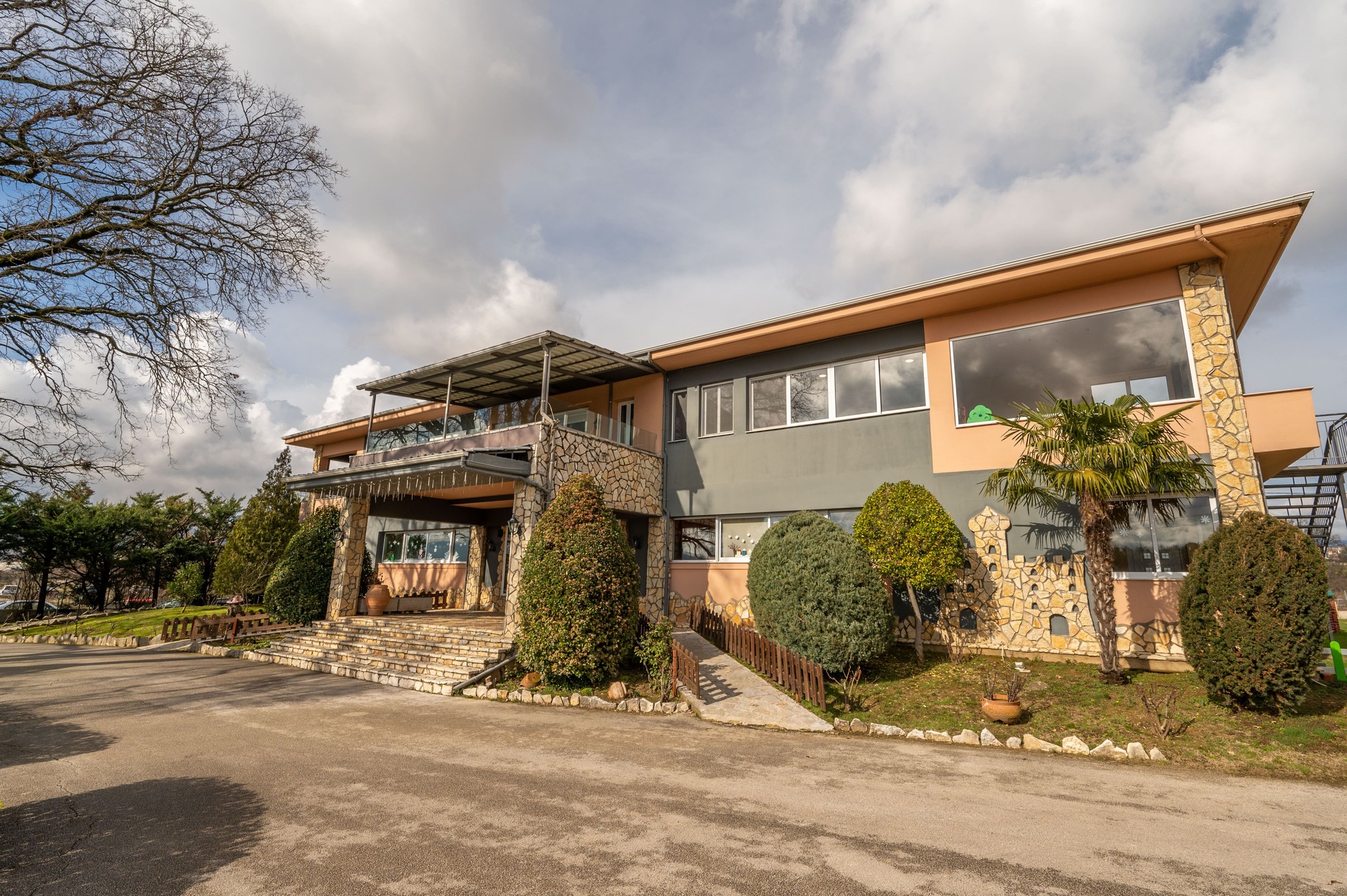
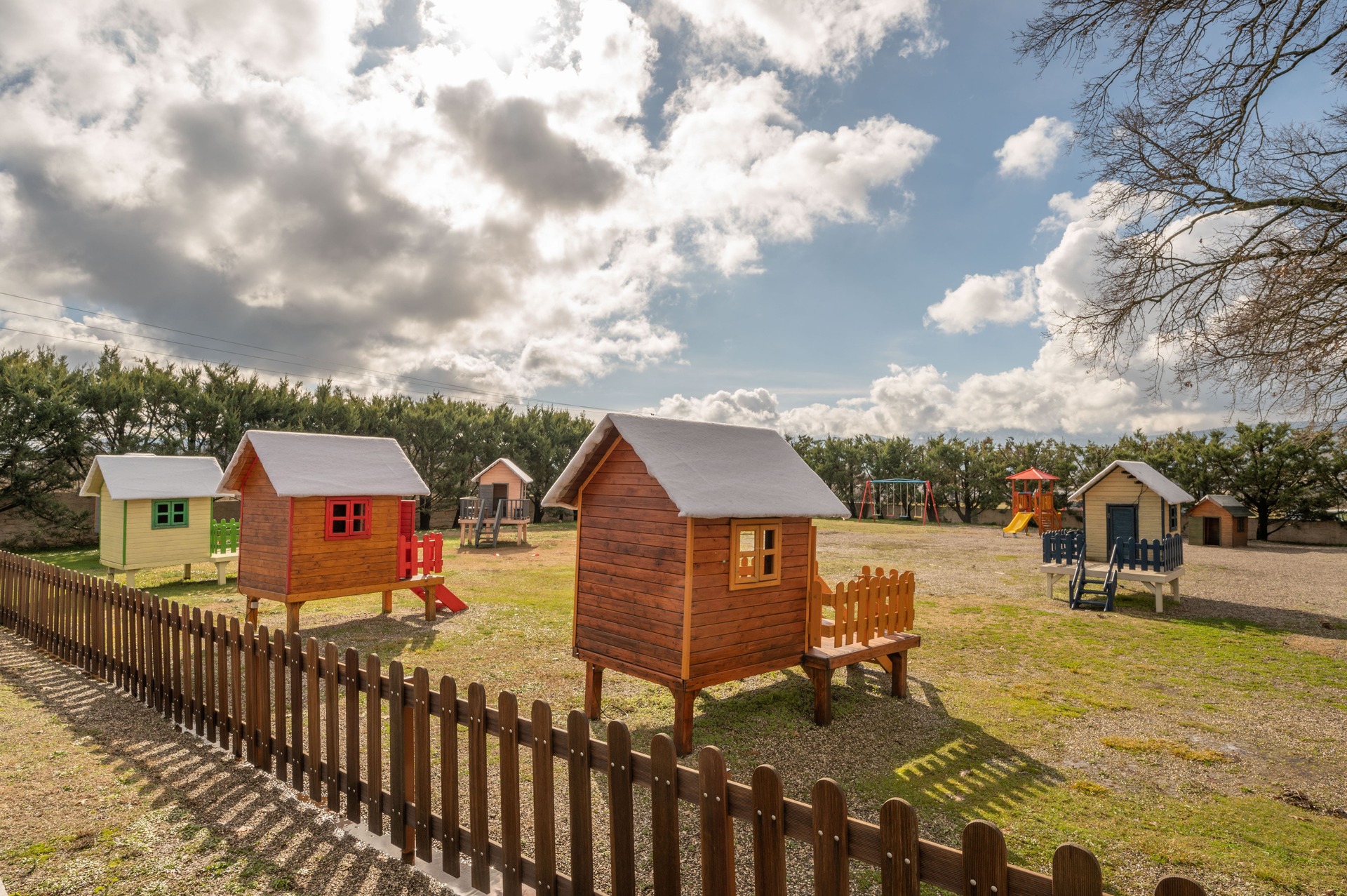
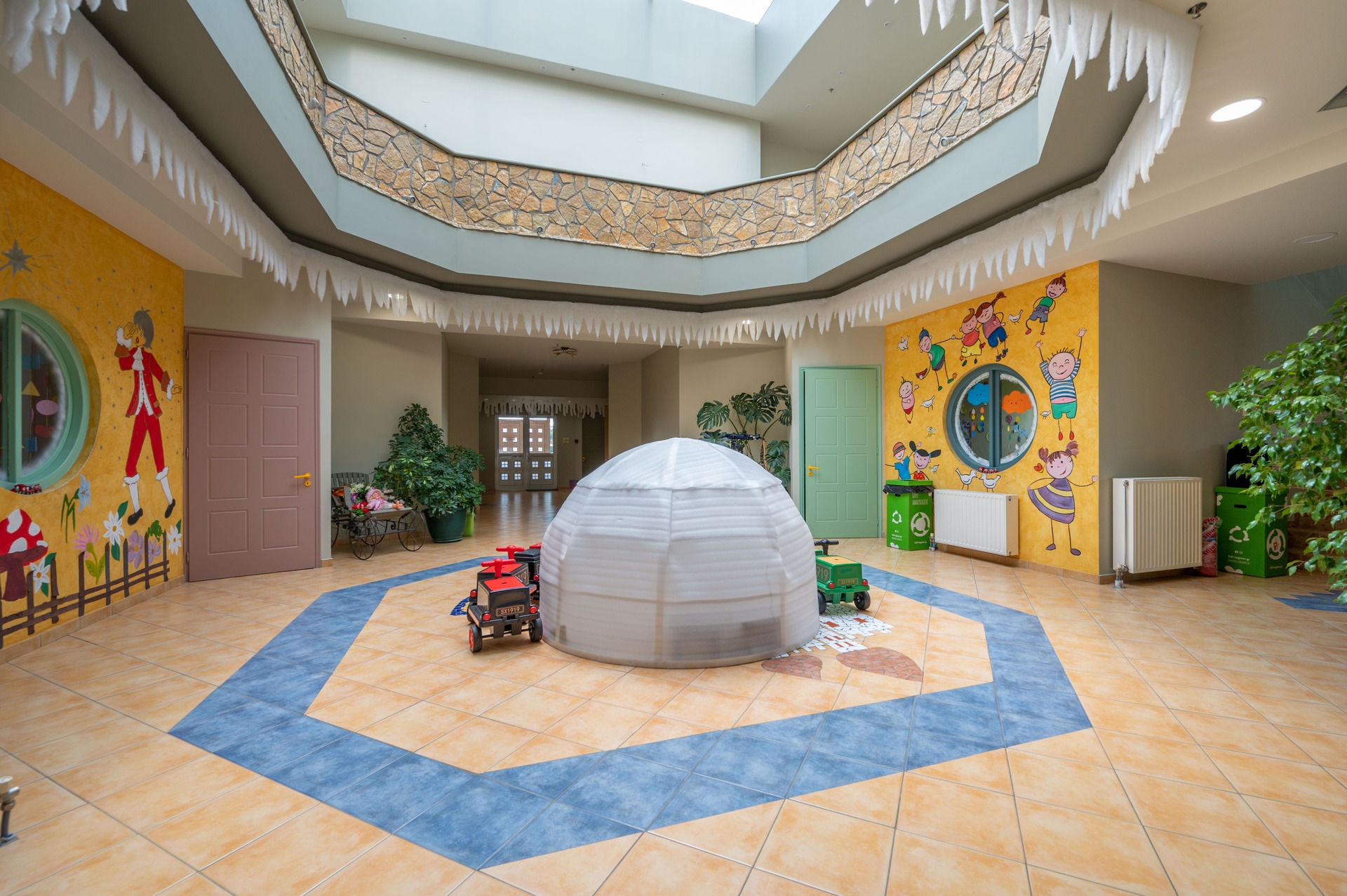
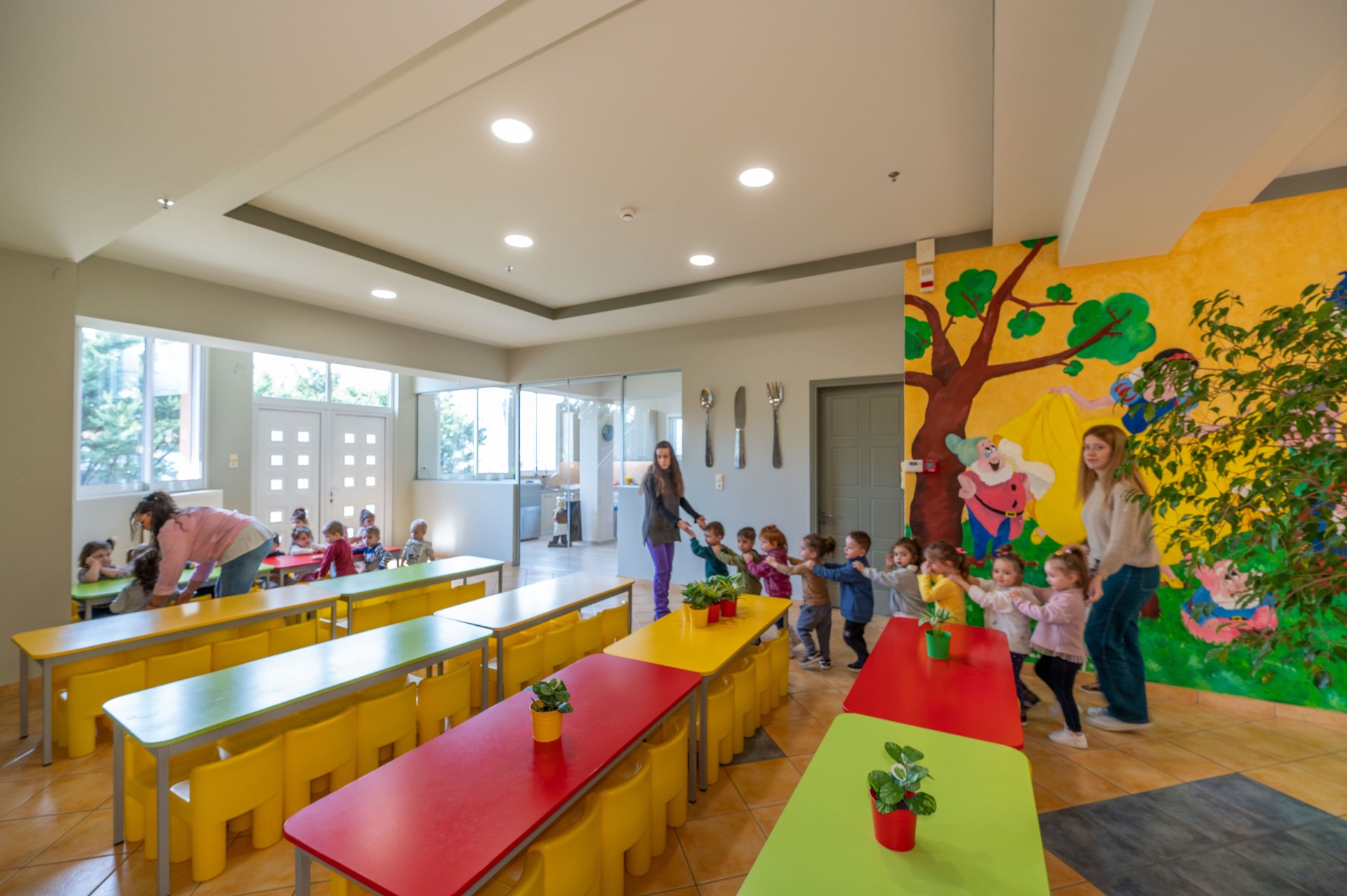
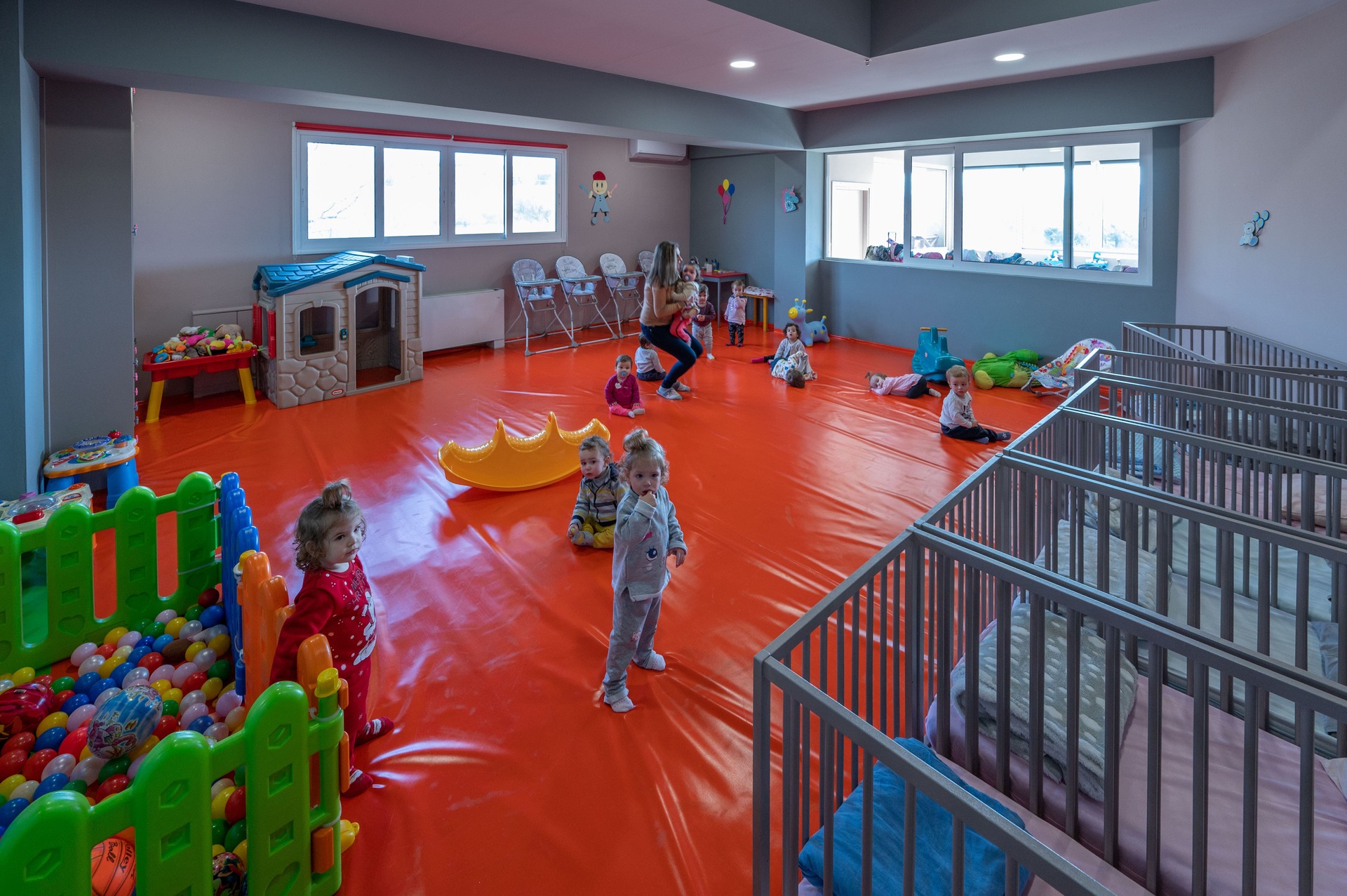
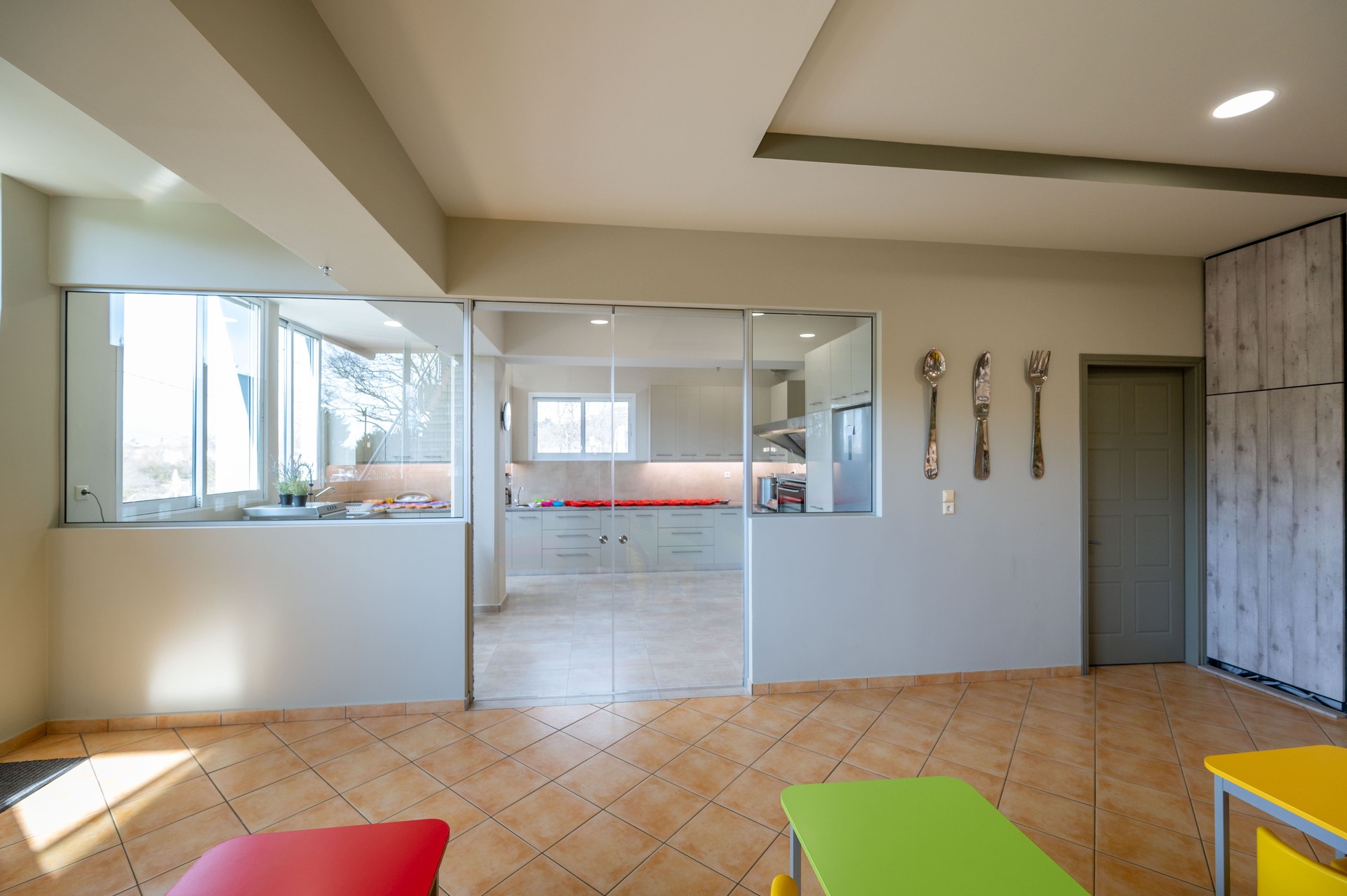
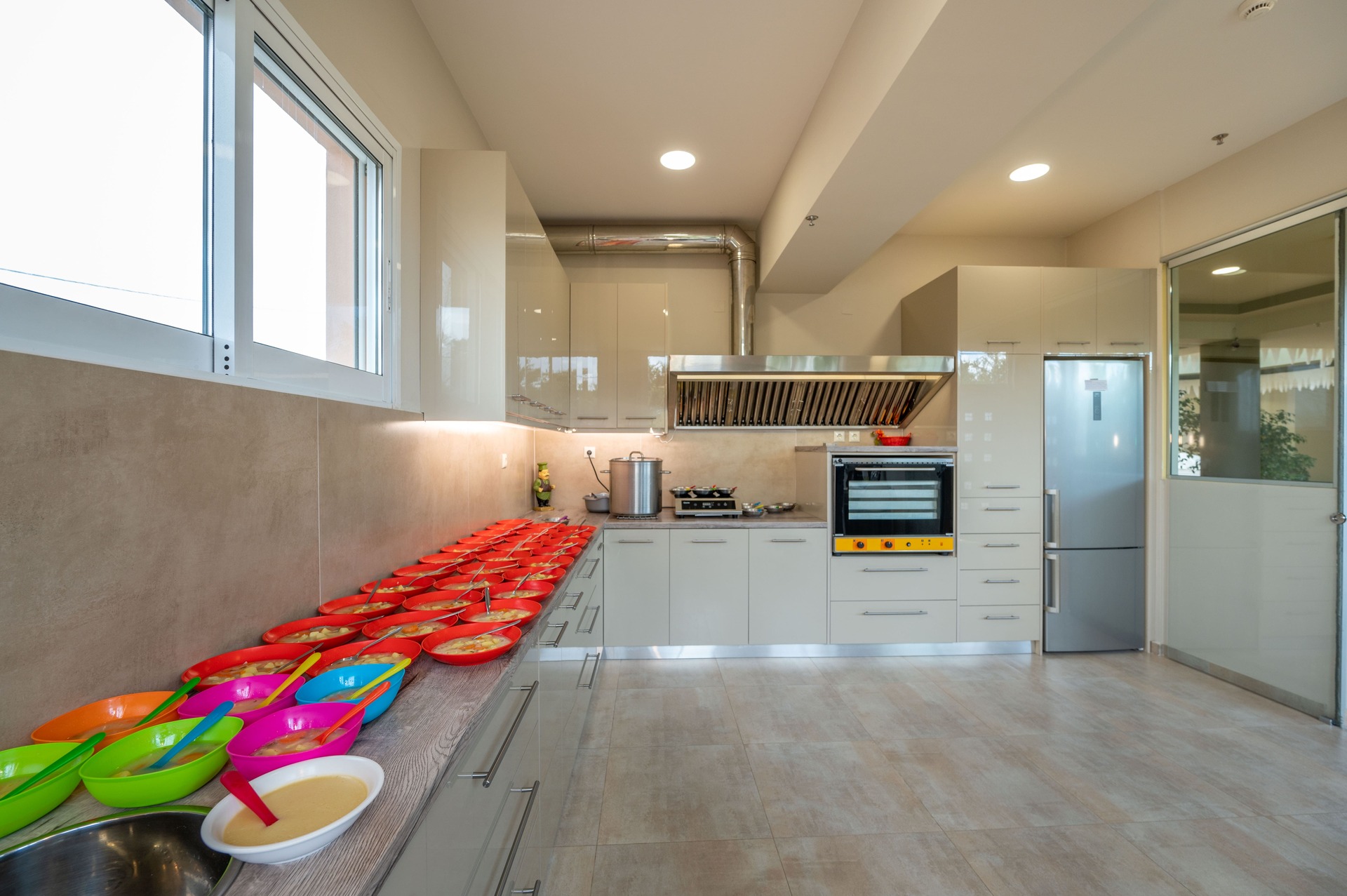
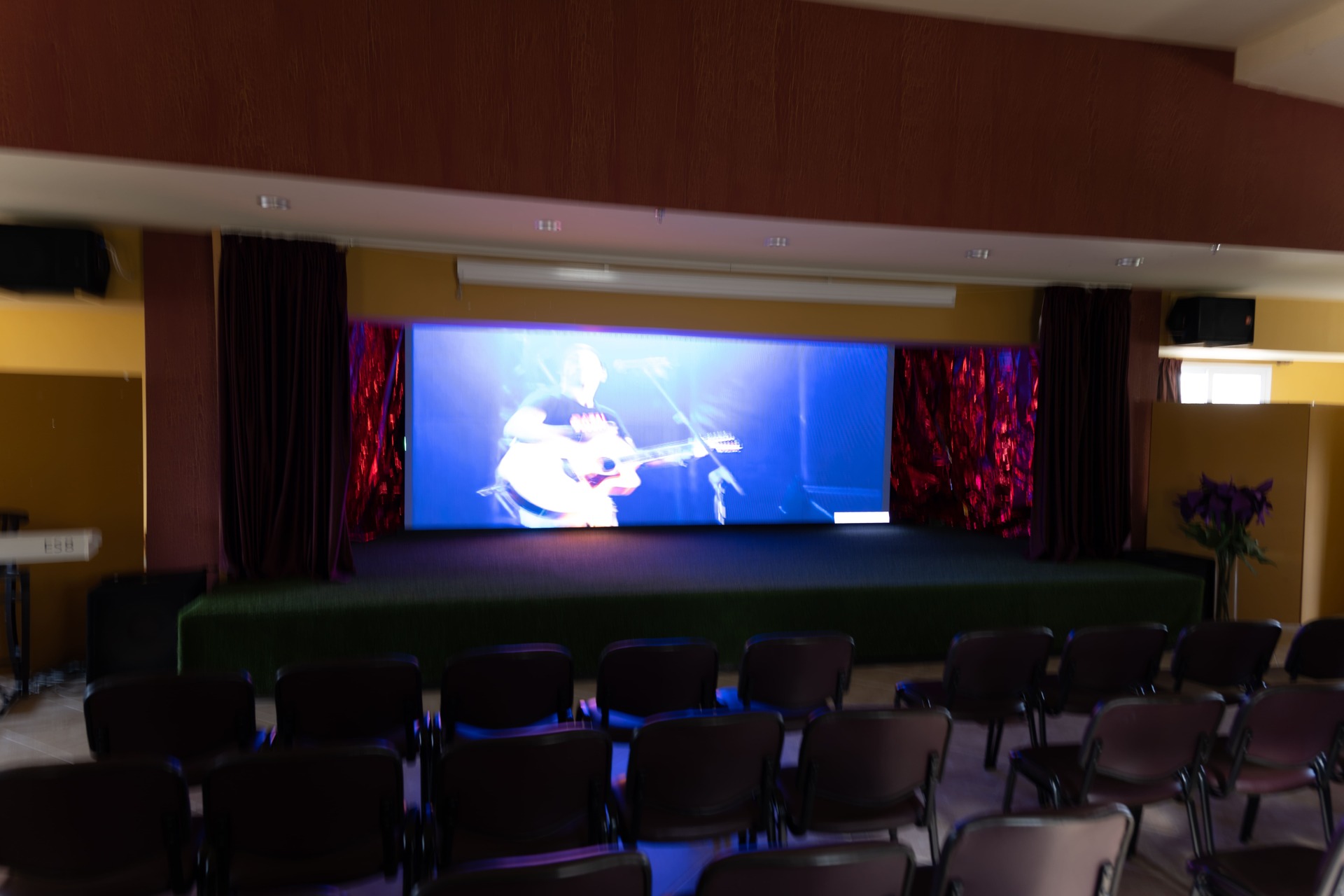
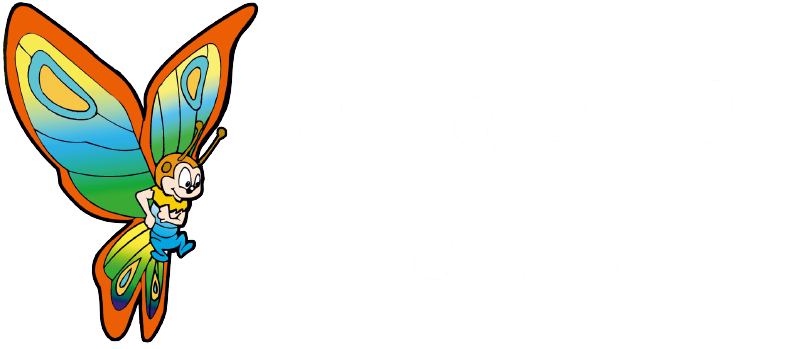

 English
English  Ελληνικά
Ελληνικά 